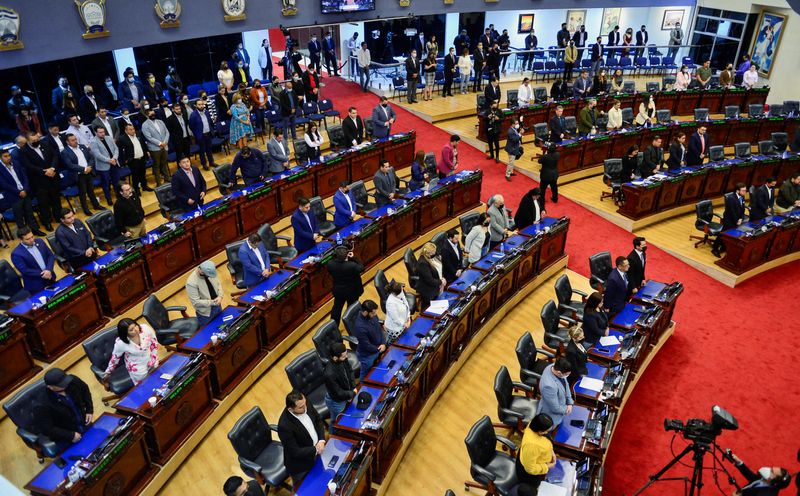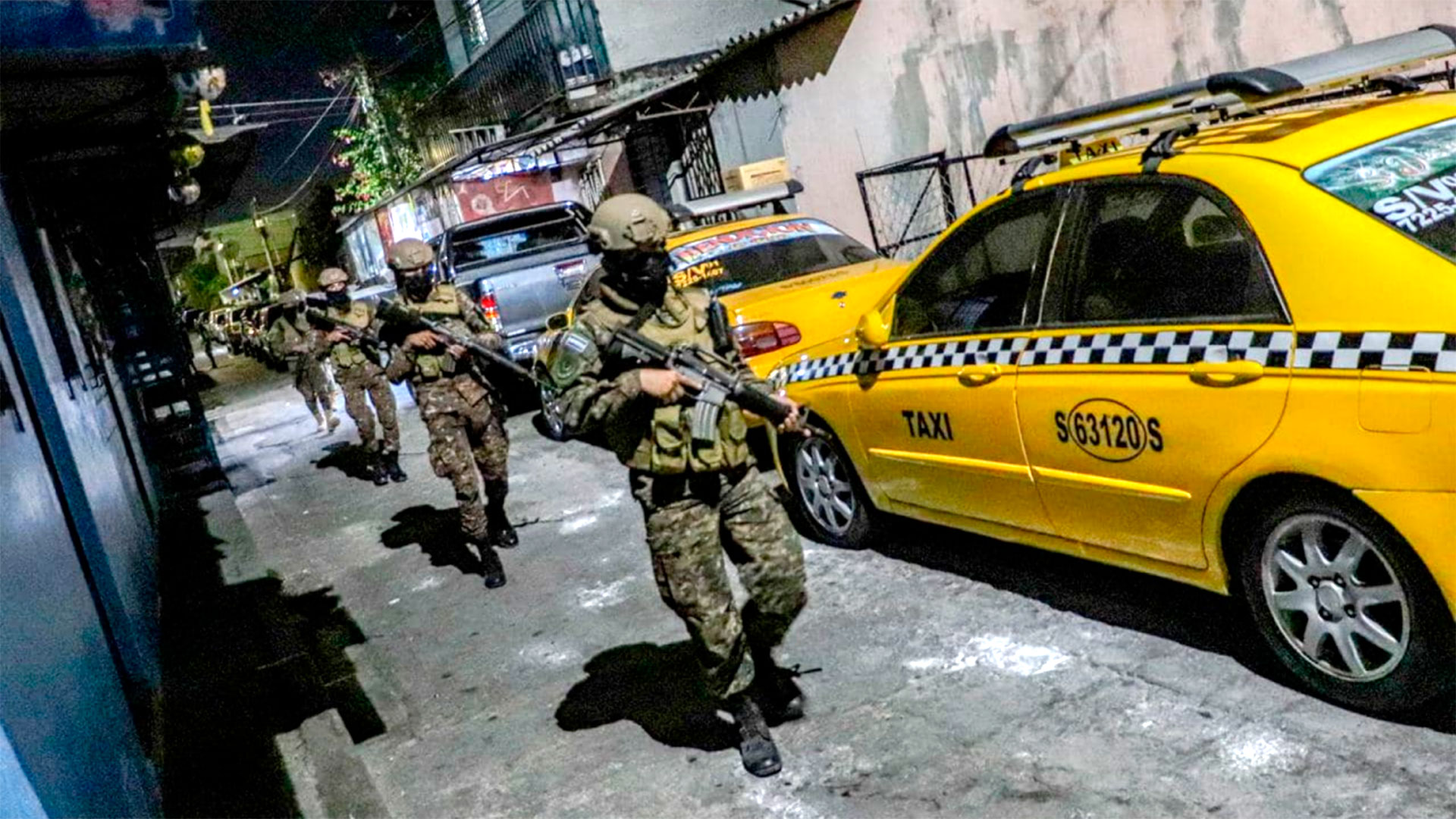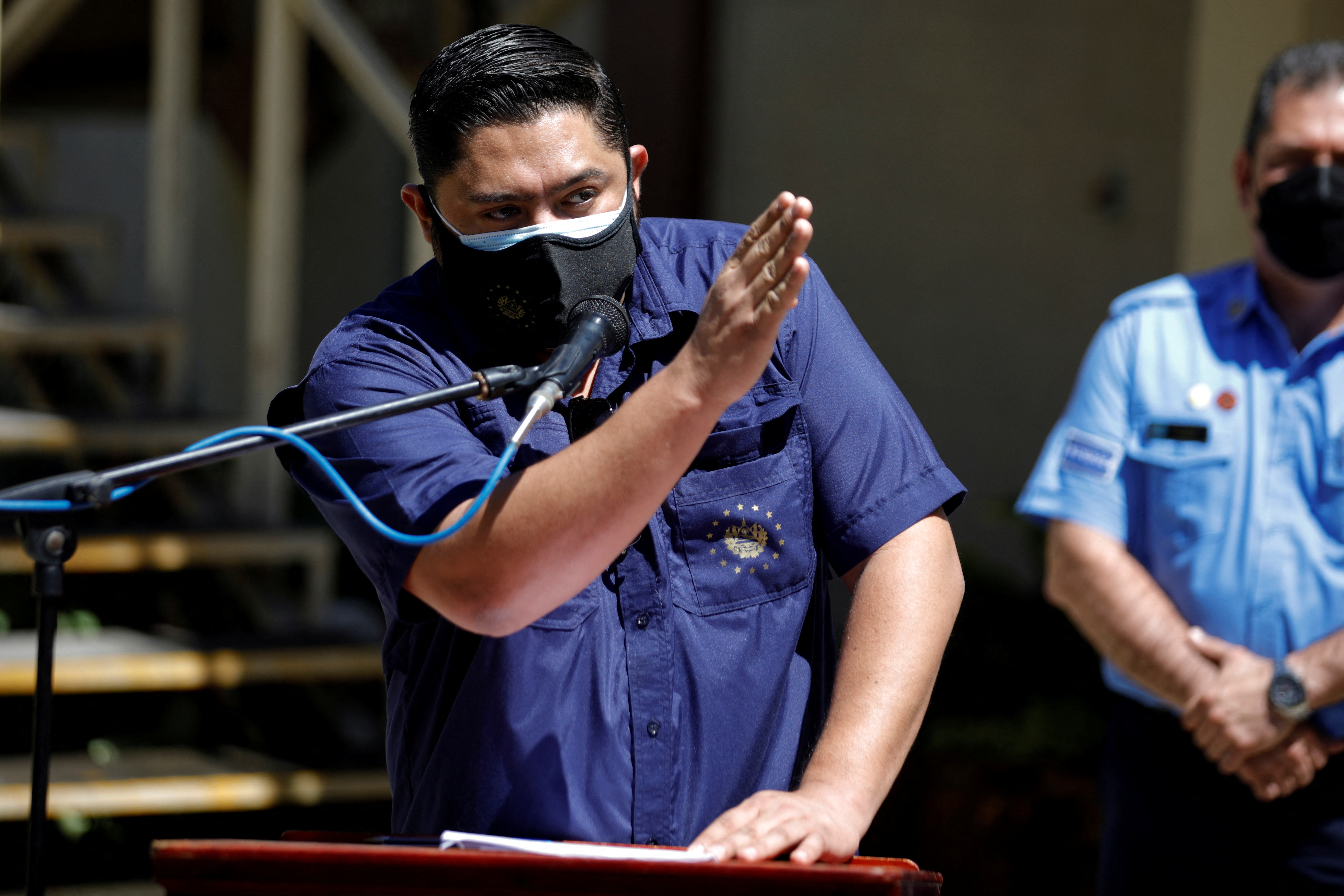:quality(85)/cloudfront-us-east-1.images.arcpublishing.com/infobae/KTCNNOIEABD5NO6QDN3K2UWDAM.jpg 420w)
The Legislative Assembly of El Salvador approved on Wednesday, March 30, a list of reforms to six laws in the country to, say officials of Nayib Bukele, combat MS13 and Barrio 18, the country's two main gangs. The amendments curtail basic civil liberties, such as the right to an adequate defence before a judge, and give broad powers to the security forces to determine, without prior investigation, who to arrest.
Everything happens after an escalation of violence that left 87 bodies in the streets and neighborhoods of the country during the last weekend of March. And it happens within the framework of a pact between the government of Nayib Bukele with the same gangs that his government now claims to be pursuing.
Congress endorsed the reforms three days after approving, on 27 March, a 30-day emergency regime that removes fundamental constitutional guarantees, extends pretrial detention periods and has served a police deployment that, according to the same government, has put 3,000 people in jail in 72 hours. Although the Office of the Attorney General of the Republic disputed this figure and set the number of provisional detainees at 1,900.

The amendment to the Penal Code, one of the laws amended last Wednesday, extends prison sentences to 20 and 30 years for those who the authorities understand that they have financed or helped gangs. Another change in this body of law increases the scope of the crime of “unlawful associations” to groups of three persons “having some degree of structuring and the purpose of committing crimes”.
Oswaldo Feusier, a criminal lawyer, believes that the reforms are aimed at ruining the presumption of innocence and understands that the government is changing the law to maintain indefinite detention of untried persons.
“We are talking about citizens who can be detained for four years, only so that in cassation (the last stage of the criminal process) they come to tell him that he was innocent. There is an exaggerated and irrational restriction on freedom,” Feusier says in a chat with Infobae.
Another amendment, the Code of Criminal Procedure, establishes that a person can be tried and convicted in absentia, without being duly notified that there is criminal proceedings against him. This, says Feusier, denies the defendant the right to material defence, that is, to present evidence of defense during a trial.
Marcela Galeas, also a criminal lawyer and critic of the government, believes that many of the reforms are illegal, even contrary to the Constitution, and, in addition, points out that they are unlikely to be efficient. “Some proposals are unconstitutional, they do not address the nature of criminal law... They base reforms on the emergency regime, not on normative necessity due to lack of regulation. Criminal laws exist and there are plenty of them,” he says.
“Increasing penalties has never meant an effective fight against crime,” says Galeas, who also believes that Salvadoran laws already have all the tools necessary to combat gangs. “It's not a legal problem, it's not a problem of legislation, the problem is that the government doesn't have a criminal policy,” he says.
Bukele has starred in this new authoritarian turn after the escalation in gang violence, but also in the last stretch of a first quarter of 2022 marked by international isolation following its refusal to condemn the Russian invasion of Ukraine, its failure to finance public debt with a Bitcoin bond that at least for now hardly anyone wants to buy from him and with the appearance of internal fractures in his political movement.
Recent violence has allowed Bukele to return to a place where he feels more comfortable, one where he can point out his enemies, in this case the gangs - despite his pact with them - and those who criticize him.
The president himself and his deputies gave clues, before approving the reforms, to whom this legal amendment is really aimed at: critics of the government and those who do not unjokingly support these new policies. “Whoever owes nothing fears,” “we're going after the financiers,” bukelite legislators tweeted to respond to lawyers, journalists and citizens who showed, in public, doubts about the legality of the reforms or their effectiveness in combating gang violence.
Before passing the reforms to Congress and when the emergency regime was already in place, Nayib Bukele had written another clue on Twitter. No one would have anything to fear, the president wrote, “unless you are a gang member or the authorities consider you a suspect.”
For lawyer Xenia Hernández, director of the Democracy Transparency Justice Foundation (DTJ), what the president said is very serious. “It is very dangerous to leave to the discretion of an official who is and who is not a suspect,” he says in conversation with Infobae.
Another amendment to the Code of Criminal Procedure suspends the possibility of alternative measures to imprisonment for anyone arrested for less serious crimes, such as public disorder. Also, again, the figures of faceless judges are established, a reward fund is created to reward any citizen who provides information on suspects of belonging to gangs. And, through a reform of the Budget Law, the government provides more funds to the public forces, police and army.

On the figure of faceless judges, lawyer Feusier believes that it is unnecessary because in the country's judicial history it is not common for judges who have seen complex crimes or organized crime to have been attacked. “It affects all organic guarantees of impartiality... The parties, since the judge is anonymous, will never realize if that judge is prejudiced, whether he is capable, if he has conflicts of interest...”, he says.
Xenia Hernández, from DTJ, sees the emergency regime as a serious risk to the country's institutions and democracy. His reflection also advances one of the main concerns expressed by members of Salvadoran civil society regarding the new legal reforms of the government: the absolute control that the president exercises over the judiciary and the Public Prosecutor's Office.
“What causes the most concern is that the entire justice system is captured by this government, it serves this government. In other words, under the generalities of this emergency regime they can use the fight against gangs as an excuse to cover up the attack and arbitrary arrests of opposition members who they accuse of being gang members or financiers or defenders,” says Hernández.
If you look from afar, it seems that the government of Nayib Bukele has waged an all-out war against the MS13 and Barrio 18 gangs, the main perpetrators of the violence in El Salvador. But, if you look closely at the government's motives, it's not so clear that the measures taken by the president are just that, a war on the gangs.
In this new escalation of violence, as well as throughout the subsequent response of Bukele and his officials, there are two scenarios. One is the audience, that of the deployment. In that, the Ministers of Defense and Security take photos with long guns in pursuit of gang members while the president and his deputies relentlessly shout that they are in a kind of holy war with the gangs.
In the other scenario, the one that the government keeps silent, what exists are facts that confirm what the United States government has already said through its departments of the Treasury and Justice, that the Bukele government is understood with gangs, at least with their leaders, with whom it has maintained a mutually beneficial pact.

No less on Friday, April 1, a new journalistic investigation yielded more details of that understanding. An extensive report signed by the specialized organized crime portal InSight Crime and the Salvadoran newspaper La Prensa Gráfica proves that the Bukele government allowed four gang leaders to temporarily leave the country's prisons in December 2021 and January 2022. The same report says that the General Directorate of Prisons has refused to confirm whether it knows where these gang members are now.
Osiris Luna Meza, the head of prisons of the Bukele government, is the official who has supervised and coordinated these departures of gang leaders. Luna is accused by the US government of being the link between Bukele and the gangs, for which a New York court prepares criminal charges.
In El Salvador, in fact, it is impossible for anyone beyond Luna Meza and her collaborators to know what gang leaders are doing and how they move in or from prisons. It is not only that the government has already disarmed all mechanisms of free access to public information, it is that since last December it has prevented prison surveillance judges from accessing the information records of prisoners, according to an investigation by El Faro.
In addition to all this, as Infobae has already published, that the Supreme Court of Justice, also under Bukele's control, has refused to extradite two of 14 MS13 leaders whose extradition the United States is demanding to answer there for crimes such as homicides and acts of terrorism. And that the attorney general, also appointed by Bukele, has explicitly requested that one of them not be extradited because the United States does not guarantee that his rights are respected.
For now, even before the bukelite congress approved the amendments, the number of murders had dropped dramatically again, to only two dead on Monday, March 28.
The reasons for the recent escalation remain unclear. Something similar had happened last November, when 42 homicides were recorded in 72 hours. The causes were not clear then either, but as Infobae reported, a senior police officer explained that one of the hypotheses was, precisely, that the pact with Bukele had been broken and the gang was sending a message.
This time, another chief who spoke to Infobae from anonymity for security, said that it is the same thing, a shock wave caused by readjustments to the pact, by lack of government compliance and by readjustments in gang leadership, especially that of MS13.
In any case, the immediate result of this new chapter in El Salvador is that today a citizen arrested by the Bukele Police on an accusation made by the Bukele Attorney General will have fewer tools to defend himself before the courts controlled by Bukele. Attorney Feusier sums it up well: “These are clear violations of the right of any citizen to be tried with due process. Criminals are not tried, anyone identified by the power of the State as a criminal is judged.”
KEEP READING:
